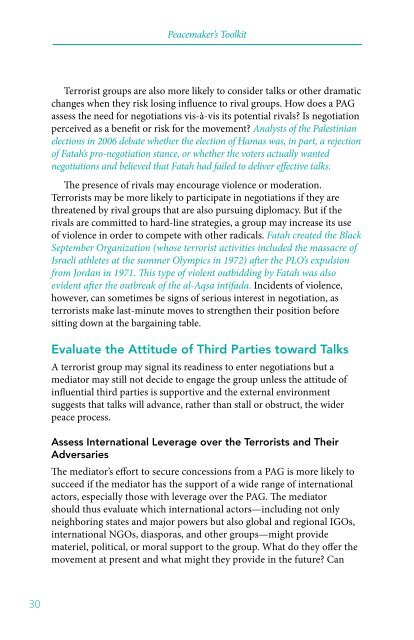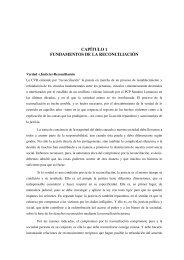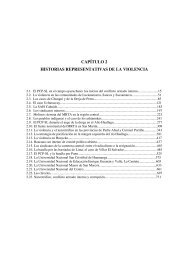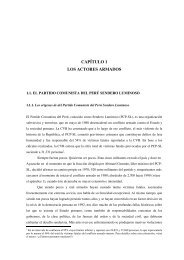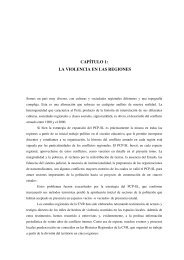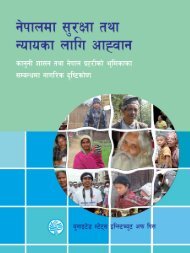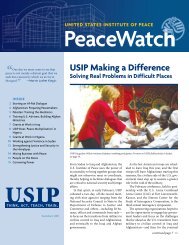Talking to Groups that Use Terror.pdf - United States Institute of Peace
Talking to Groups that Use Terror.pdf - United States Institute of Peace
Talking to Groups that Use Terror.pdf - United States Institute of Peace
Create successful ePaper yourself
Turn your PDF publications into a flip-book with our unique Google optimized e-Paper software.
<strong>Peace</strong>maker’s Toolkit<strong>Terror</strong>ist groups are also more likely <strong>to</strong> consider talks or other dramaticchanges when they risk losing influence <strong>to</strong> rival groups. How does a PAGassess the need for negotiations vis-à-vis its potential rivals? Is negotiationperceived as a benefit or risk for the movement? Analysts <strong>of</strong> the Palestinianelections in 2006 debate whether the election <strong>of</strong> Hamas was, in part, a rejection<strong>of</strong> Fatah’s pro-negotiation stance, or whether the voters actually wantednegotiations and believed <strong>that</strong> Fatah had failed <strong>to</strong> deliver effective talks.The presence <strong>of</strong> rivals may encourage violence or moderation.<strong>Terror</strong>ists may be more likely <strong>to</strong> participate in negotiations if they arethreatened by rival groups <strong>that</strong> are also pursuing diplomacy. But if therivals are committed <strong>to</strong> hard-line strategies, a group may increase its use<strong>of</strong> violence in order <strong>to</strong> compete with other radicals. Fatah created the BlackSeptember Organization (whose terrorist activities included the massacre <strong>of</strong>Israeli athletes at the summer Olympics in 1972) after the PLO’s expulsionfrom Jordan in 1971. This type <strong>of</strong> violent outbidding by Fatah was alsoevident after the outbreak <strong>of</strong> the al-Aqsa intifada. Incidents <strong>of</strong> violence,however, can sometimes be signs <strong>of</strong> serious interest in negotiation, asterrorists make last-minute moves <strong>to</strong> strengthen their position beforesitting down at the bargaining table.Evaluate the Attitude <strong>of</strong> Third Parties <strong>to</strong>ward TalksA terrorist group may signal its readiness <strong>to</strong> enter negotiations but amedia<strong>to</strong>r may still not decide <strong>to</strong> engage the group unless the attitude <strong>of</strong>influential third parties is supportive and the external environmentsuggests <strong>that</strong> talks will advance, rather than stall or obstruct, the widerpeace process.Assess International Leverage over the <strong>Terror</strong>ists and TheirAdversariesThe media<strong>to</strong>r’s effort <strong>to</strong> secure concessions from a PAG is more likely <strong>to</strong>succeed if the media<strong>to</strong>r has the support <strong>of</strong> a wide range <strong>of</strong> internationalac<strong>to</strong>rs, especially those with leverage over the PAG. The media<strong>to</strong>rshould thus evaluate which international ac<strong>to</strong>rs—including not onlyneighboring states and major powers but also global and regional IGOs,international NGOs, diasporas, and other groups—might providemateriel, political, or moral support <strong>to</strong> the group. What do they <strong>of</strong>fer themovement at present and what might they provide in the future? Can30


